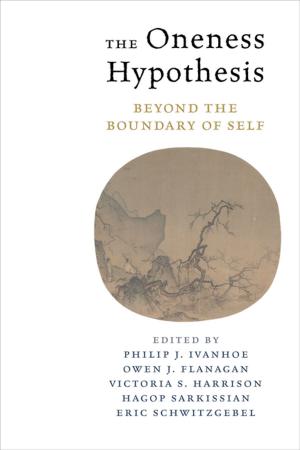The Origins of Life and the Universe
Nonfiction, Science & Nature, Science, Physics, Astrophysics & Space Science, Biological Sciences, Biology| Author: | Paul Lurquin | ISBN: | 9780231507660 |
| Publisher: | Columbia University Press | Publication: | April 16, 2003 |
| Imprint: | Columbia University Press | Language: | English |
| Author: | Paul Lurquin |
| ISBN: | 9780231507660 |
| Publisher: | Columbia University Press |
| Publication: | April 16, 2003 |
| Imprint: | Columbia University Press |
| Language: | English |
The Origins of Life and the Universe is the culmination of a university science professor's search for understanding and is based on his experiences teaching the fundamental issues of physics, chemistry, and biology in the classroom. What is life? Where did it come from? How can understanding the origins of life on Earth help us understand the origins of the universe, and vice versa? These are questions that have occupied us all. This is a book, then, about the beginning of things—of the universe, matter, stars, and planetary systems, and finally, of life itself—topics of profound interest that are rarely considered together.
After surveying prescientific accounts of the origins of life, the book examines the concepts of modern physics and cosmology, in particular the two pillars of modern physics, relativity and quantum theory, and how they can be applied to the Big Bang model of the creation of the universe. The author then considers molecular genetics and DNA, the famed building block of life. In addition to assessing various hypotheses concerning the appearance of the first bacterial cells and their evolution into more complex eukaryotic cells, this section explains how "protocells" may have started a kind of integrated metabolism and how horizontal gene transfer may have speeded up evolution. Finally, the book discusses the possibility that life did not originate on planet Earth but first appeared on other solar planets, or perhaps in other star systems. How would such a possibility affect our understanding of the meaning of life, or of its ultimate fate in the universe? The book ends as it begins, with profound questions and penetrating answers, a state-of-the-art guide to unlocking the scientific mysteries of life and matter.
The Origins of Life and the Universe is the culmination of a university science professor's search for understanding and is based on his experiences teaching the fundamental issues of physics, chemistry, and biology in the classroom. What is life? Where did it come from? How can understanding the origins of life on Earth help us understand the origins of the universe, and vice versa? These are questions that have occupied us all. This is a book, then, about the beginning of things—of the universe, matter, stars, and planetary systems, and finally, of life itself—topics of profound interest that are rarely considered together.
After surveying prescientific accounts of the origins of life, the book examines the concepts of modern physics and cosmology, in particular the two pillars of modern physics, relativity and quantum theory, and how they can be applied to the Big Bang model of the creation of the universe. The author then considers molecular genetics and DNA, the famed building block of life. In addition to assessing various hypotheses concerning the appearance of the first bacterial cells and their evolution into more complex eukaryotic cells, this section explains how "protocells" may have started a kind of integrated metabolism and how horizontal gene transfer may have speeded up evolution. Finally, the book discusses the possibility that life did not originate on planet Earth but first appeared on other solar planets, or perhaps in other star systems. How would such a possibility affect our understanding of the meaning of life, or of its ultimate fate in the universe? The book ends as it begins, with profound questions and penetrating answers, a state-of-the-art guide to unlocking the scientific mysteries of life and matter.















